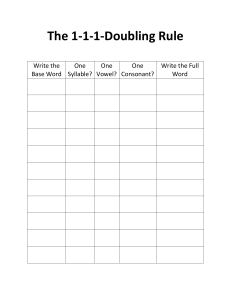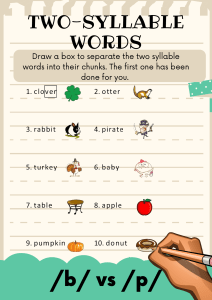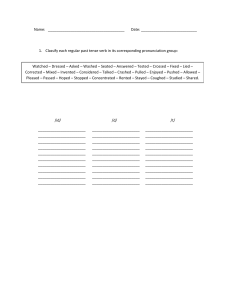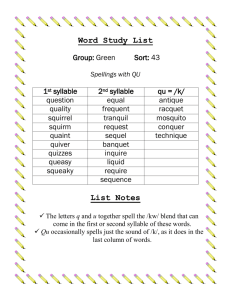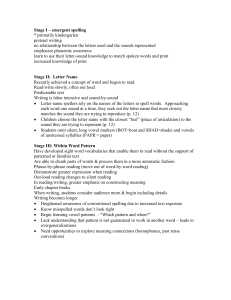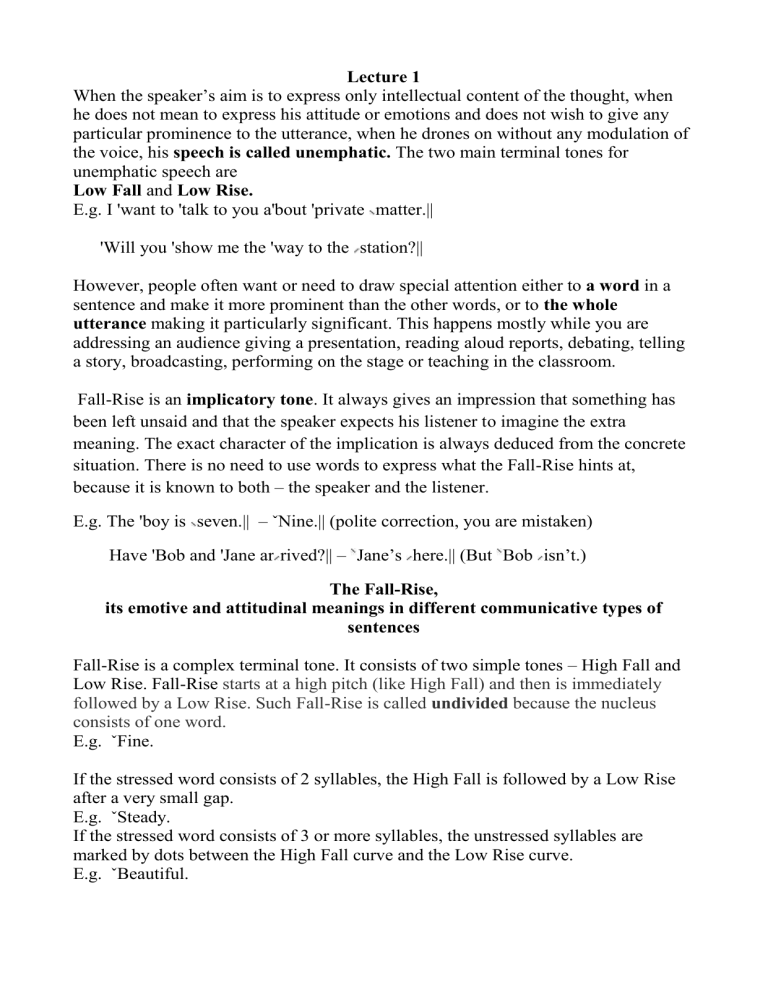
Lecture 1 When the speaker’s aim is to express only intellectual content of the thought, when he does not mean to express his attitude or emotions and does not wish to give any particular prominence to the utterance, when he drones on without any modulation of the voice, his speech is called unemphatic. The two main terminal tones for unemphatic speech are Low Fall and Low Rise. E.g. I 'want to 'talk to you a'bout 'private matter.|| 'Will you 'show me the 'way to the station?|| However, people often want or need to draw special attention either to a word in a sentence and make it more prominent than the other words, or to the whole utterance making it particularly significant. This happens mostly while you are addressing an audience giving a presentation, reading aloud reports, debating, telling a story, broadcasting, performing on the stage or teaching in the classroom. Fall-Rise is an implicatory tone. It always gives an impression that something has been left unsaid and that the speaker expects his listener to imagine the extra meaning. The exact character of the implication is always deduced from the concrete situation. There is no need to use words to express what the Fall-Rise hints at, because it is known to both – the speaker and the listener. E.g. The 'boy is seven.|| – ˇNine.|| (polite correction, you are mistaken) Have 'Bob and 'Jane ar rived?|| – Jane’s here.|| (But Bob isn’t.) The Fall-Rise, its emotive and attitudinal meanings in different communicative types of sentences Fall-Rise is a complex terminal tone. It consists of two simple tones – High Fall and Low Rise. Fall-Rise starts at a high pitch (like High Fall) and then is immediately followed by a Low Rise. Such Fall-Rise is called undivided because the nucleus consists of one word. E.g. ˇFine. If the stressed word consists of 2 syllables, the High Fall is followed by a Low Rise after a very small gap. E.g. ˇSteady. If the stressed word consists of 3 or more syllables, the unstressed syllables are marked by dots between the High Fall curve and the Low Rise curve. E.g. ˇBeautiful. If this word is followed by another word (or other words), it is (they are) unstressed or partially stressed. E.g. ˇWatch it! ˇWatch ıout! Fall-Rise undivided 1. Statements. (LOW PRE-HEAD+) FALL- RISE (+TAIL) (LOW PRE-HEAD +) DESCENDING HEAD+FALL- RISE (+TAIL) a) polite correction E.g. There were `five people there.|| – ˇSeven.|| b) unwilling admitting E.g. 'Is he 'tall and dark?|| – Well, he’s ˇtall.|| c) defensive disagreement E.g. It 'didn’t 'take you `long.|| – It ˇdid.|| d) unconfident suggestion E.g. Your 'telephone 'wasn’t `working.|| – You might have 'dialed the 'wrong ˇnumber.|| e) concerned E.g. 'Have you 'heard the 'news about Frank?|| – You 'don’t mean to 'say he’s 'failed aˇgain.|| f) hurt feelings E.g. You are 'not `trying! ||– I most 'certainly ˇam.|| g) doubt, hesitation E.g. 'What did you 'think of the `lecture? ||– It 'wasn’t e'xactly senˇsational.|| 2. Special Questions (LOW PRE-HEAD+) FALL- RISE (+TAIL) (LOW PRE-HEAD +) DESCENDING HEAD+FALL- RISE (+TAIL) greatly astonished, surprised, sometimes interested and concerned. E.g. It 'cost over 'ten `pounds. -ˇHow much? 'Where did you meet him? - 'Where did I ˇmeet him? 3. General Question (LOW PRE-HEAD+) FALL- RISE (+TAIL) (LOW PRE-HEAD +) DESCENDING HEAD+FALL- RISE (+TAIL) greatly astonished, surprised, sometimes interested and concerned. E.g. I 'can’t under stand. – ˇCan’t you? 'Couldn’t you 'try a gain? - 'Couldn’t I 'try aˇgain? 4. Imperatives (Commands) (LOW PRE-HEAD+) FALL- RISE (+TAIL) (LOW PRE-HEAD +) DESCENDING HEAD+FALL- RISE (+TAIL) warning with a note of reproach or concern. E.g. I 'think it’s 'going to rain.|| – Oh, 'don’t 'say ˇthat!|| ˇCatch me, Daddy! || - ˇ Careful!|| 5. Exclamations (LOW PRE-HEAD+) FALL- RISE (+TAIL) (LOW PRE-HEAD +) DESCENDING HEAD+FALL- RISE (+TAIL) scornful E.g. 'Don't you 'find it 'difficult to 'study math? - ˇRather! 'Going for a swim today? - Not ˇme! Lecture 2 The Fall-Rise is called divided if it extends over two or more words. It starts as High Fall at a high pitch and then is followed by a Low Rise after a short space. The fall is always high and makes one of the initial words very prominent. The Low Rise usually occurs at the end of the syntagm and makes the second word less important than the word with High Fall. e.g. Cheer up!|| If there are stressed and unstressed words between the High Fall and the Low Rise, they are pronounced and depicted at a very low pitch. e.g. Could you please help?|| E.g. Do be quick! If there is a tail after the Low Rise, it is depicted by a dash and a dot rising to a medium pitch. e.g. I beg your pardon.|| Fall-Rise divided is used in: 1. Statements. It makes the utterance very emotional. The statements sound apologetic, appreciative, grateful, regretful, sympathetic, reassuring, plaintive, pleading. E.g. I hope I’m not late. (apologetic) It’s 'quite good really. (appreciative) You can’t i magine what your help has meant to me. (grateful) I 'don’t know I’m af raid. (regretful) I quite understand your po sition. (sympathetic) I should do the task if I were you. (reassuring) It’s always the same. (plaintive) You must try to be more careful. (pleading) Fall-Rise divided emphasizes the semantic center of the utterance with High Fall and marks the other important idea with Low Rise. Low Rise may be placed not only in the main part of the utterance but in the parenthesis (=afterthought) or in the subordinate clause as well. E.g. I 'don’t re`member I’m af raid.(parenthesis) I should 'go `home if I were you.(subordinate clause) 2. General Questions sound plaintive, pleading. E.g. Can’t you see I’m busy? Can I have another piece of cake? 3. Special Questions sound plaintive, pleading, weary, warm, affectionate, sympathetic. E.g. Why don’t you listen, Charlie? What’s made you change your mind? When will you be back? 4. Imperatives (commands, requests) sound plaintive, reproachful, pleading, reassuring. E.g. Cheer up! Do for give me! 5. Exclamations sound warm, appreciative, sympathetic, encouraging, puzzled, surprised. E.g. All right! What a pity! Lecture 4 The Rise-Fall, its emotive and attitudinal meanings in different communicative types of sentences. The Rise-Fall starts in the middle of the voice range, rises to a very high pitch and then falls to a very low pitch. I. In monosyllabic words the rise and the fall are realized in one syllable. E.g. ^Oh! ^Fine! ^Thanks. II. In a two-syllabic word or in two separate words, where the first syllable is stressed and contains a long vowel or a diphthong, it is pronounced with High Rise and the unstressed syllable - at a very low pitch. E.g. ^Gorgeous! Good ^evening! ^Don’t then! ^Can’t you? If the first syllable is stressed and contains a short vowel, it is given a low-level stress, after which the voice jumps upward in pitch and falls during the second, unstressed syllable. E.g. ^Never! ^Let her! ^Will you? With ^pleasure! III. In a three-syllabic word or in a word-combination of three separate words, when the first syllable is stressed, it is pronounced on a medium level, the second unstressed syllable is very high-pitched and the last unstressed syllable is very lowpitched. E.g. ^Wonderful! ^Ask him to! You ^can do it. On the ^contrary. IV. In a four-, five-syllabic word or in a word-combination of four, five separate words, the first syllable is pronounced on a medium level, the second unstressed syllable is very high-pitched and the third, fourth and the fifth unstressed syllables are very lowpitched. E.g. ^Naturally. ^You can do it. The Rise-Fall terminal tone is usually combined with the Descending Stepping Head. The pre-head and the tail are usually low-pitched. E.g. It was 'not like 'that at ^all. __________________ (1syllabic structure) You can 'hardly ^blame her. __________________ (2 syllabic structure) I 'simply ^hated it. _________________________ (3 syllabic structure) ^Show me that one. ________________________ (4 syllabic structure) Lecture 5 II. The Rise-Fall is an implicit tone. It implies all the definiteness and finality associated with the other falling tone contour. It particularly shows that the speaker is impressed (favourably or unfavourably). This tone has an intensifying function, similar to the use of the word “even”. E.g. You 'aren’t ^trying. = You aren’t even trying. Note: Richard Kingdon says that Rise-Fall is mostly heard in the speech of children and women. However, recent observations of English intonation in BBC broadcasts show that men use this tone rather frequently when they are really involved in an exciting situation. The Rise-Fall terminal tone is used in the following communicative types of sentences: I. Statements. The initial rise in the Rise-Fall tone adds to the definiteness and finality of a falling tone some warmth, admiration, sarcasm, indignation, thus emphasizing either positive or negative emotions, according to the situation. The speaker is greatly impressed. E.g. It is ^very good! I had a ^marvelous time. II. General Questions. Rise-Fall makes general questions sound impressed, challenging, and antagonistic. E.g. 'Is he ^really interested? But could ^you do any better? 'Is it ^worth it, do you think? In short responses, the speaker accepts what has been said and is impressed by it. E.g. He shot an elephant. – ^Did he? (2-syllabic structure, short vowel) They have nowhere to live. – ^Haven’t they? (3-syllabic structure) III. Special Questions. Sound challenging, antagonistic, disclaiming responsibility. E.g. ^What book? ^How? 'Why ^should I? 'What’s the 'use of doing ^that? What else ^can I say? IV. Imperatives. Sound disclaiming responsibility. E.g. I don’t want to play. – ^Don’t then. The phone is out of order. – ^Write to them, in that case. V. Exclamations. Sound impressed. E.g. ^Splendid. How ^marvelous. How 'very 'nice of you to re^member.
